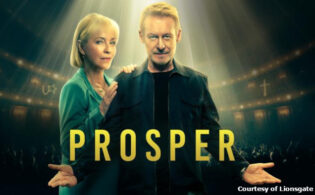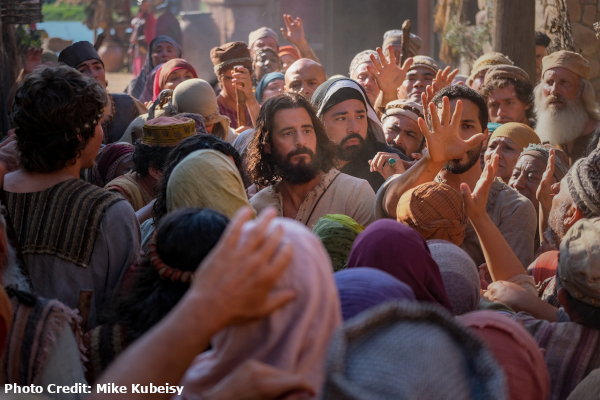Sandra Stern, the president of Lionsgate Television Group, discussed how the independent studio is partnering with established and new talent to serve the needs of commissioners across broadcast, cable and streaming at the TV Drama Festival today.
You can watch Stern’s keynote conversation with TV Drama’s Anna Carugati here. It began with Stern discussing the studio’s long legacy of looking outside of the U.S. for partnerships, which dates back to her own time working with Jon Feltheimer—today Lionsgate’s CEO—at New World. “We were always scrambling for money, so we looked outside the U.S. to see if we could put together some funding, which we did.”
“These days we continue to do co-productions,” Stern said. “Fortunately, we are not so tight for money anymore! These days our co-production partnerships are really centered around strategic initiatives rather than financial.”
Stern referenced the joint venture with BBC Studios. “They are co-production partners. They share the financing. But the driver for that venture was access to the U.K. market. That venture gave us access to BBC [Studios] formats. Most recently, it’s yielded Ghosts, our big breakout hit on CBS; Welcome to Flatch on FOX; and six or eight or ten high-quality format projects that we have at various places around town. That has been an important strategic initiative for us. We look at joint ventures and co-productions and the international marketplace as a way to broaden our access to top-quality material and talent.”
On how Lionsgate has been able to dramatically expand its television slate, Stern noted that the studio has taken advantage of the emergence of the wealth of new buyers. “I don’t know that any of the others are as laser-focused as we are on new platforms, but that is just an industry-wide boon. What has been unique for Lionsgate has been our focus on accessing the most undeniable content. That has meant undeniable partners. The acquisition of the majority interest in 3 Arts Entertainment, for instance, has given us access to talent, material, creative viewpoints that we would not have otherwise.”
Stern also referenced the importance of Lionsgate’s stake in the U.K. management and production company 42. “The U.K. is a repository of great talent. Many of that talent either work actively in the U.S. or aspire to do so. We have had an opportunity to mine that talent. The relationships that we have made have been a really great source of material for us. We’ve been very careful and intentional about the overall deals we have, the people that we have brought into our fold, and the way we have gone about presenting and packaging our projects.”
Stern continued, “Nearly all of the platforms want to keep their projects in-house. In order to be noticed, we need to be able to deliver to them things that they are not otherwise delivering for themselves. That may be high-end IP we have been able to access, both through our own library and through our ventures. It may be a well-packaged project that has elements they want to be in business with. It may simply be a take or an approach that is, again, undeniable. The third element is our relationship with STARZ. It allows us to have an insight into precisely what it is they’re looking for so that we can try to guide our development to things that are meaningful for them. Lionsgate has big aspirations. We have something like 30 or 31 scripted series, We do have greater aspirations than any one network can fulfill. And not everything we do is right for STARZ. They’ve got to build their platform for their audience. But it is undeniable that our relationship and our access to STARZ has allowed us to increase our output.”
On co-funding models, Stern noted: “Most of the platforms want to have an ownership stake in everything they put on the air. It is a rare case in which we do not partner with the platform. Lionsgate has always been quite innovative with our financing. So, do we need a network co-production in order to finance our series? Probably not, because we are pretty innovative. But it doesn’t hurt to have the network financing. The major advantage to the network co-productions is very strategic. It gives us a window into the network when we partner with their sister studio. It may give us an advantage if we have a show that is on the bubble.”
Discussing Lionsgate’s overall approach to financing, Stern said the studio takes a portfolio approach to its slate. “We are looking at trying to achieve the right balance between projects that we deficit but to which we control all the ancillary rights, so a broadcast show, for instance; [and projects] the streamers will pay an expanded license fee—a cost plus license fee with a substantial premium—for rights for an extended period of time. We do get those rights back. We can monetize downstream, but it takes a while. We try to balance those two different kinds of models. Ideally, if we get it right, we have a self-sustaining system where the premium on the cost plus streamers allows us to defray the risk of the broadcast model.”
Lionsgate has also fared well in “renegotiating and restructuring some of those broadcast models. The broadcast model had been challenging—high-risk, high-reward. It was outside our risk appetite. But in the past several years, we have worked very aggressively and very successfully with some of our broadcast partners to change the model, to rebalance it in a way that was financially beneficial for us and strategically beneficial for the platform. The world has changed, and it is no longer the case that the broadcast network is the sun in the constellation of the universe of these vertically integrated platforms. It no longer makes the sense that it once made to look at an ABC deal as a deal for ABC alone. We shifted the way we’re all thinking about the television landscape… to start to look at that programming in a way that was in everybody’s self-interest. It’s allowed us to be back in the broadcast business. We have series on all four networks, which is really a first for us. Fortunately, they’ve all been renewed so we can breathe a sigh of relief. Some of the risk has been eliminated and hopefully will continue to be.”
On the opportunities and challenges ahead, Stern noted: “As we look at a maturing streaming market, in which unlimited growth may not be the future, there may be some pullback. That is both a challenge and an opportunity. It requires us to double down on our quality, to be the studio that breaks through the clutter. It’s a challenge to continue to access top-quality talent. Something that Lionsgate is very good at is working at both ends of the spectrum. Everything does not have to be $10 million an episode. We are looking to be able to service every platform. As the financial ability or willingness of some of the platforms to spend wildly is perhaps shrinking, we are able to pivot in a way that I think a lot of the studios are not able to do.”
 TVDRAMA
TVDRAMA






